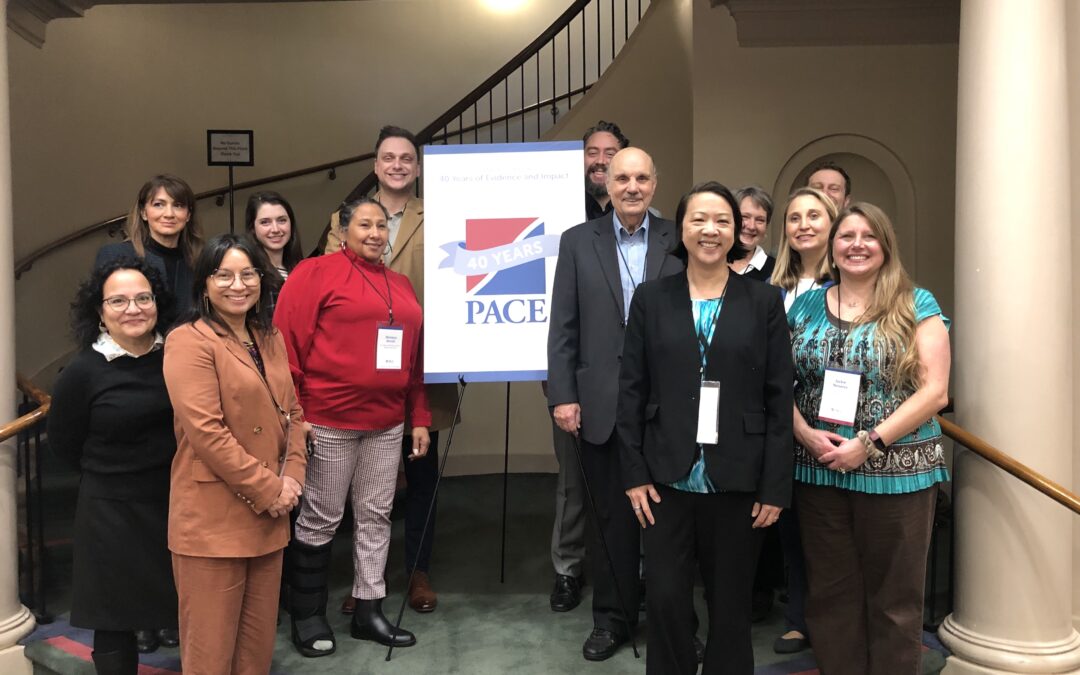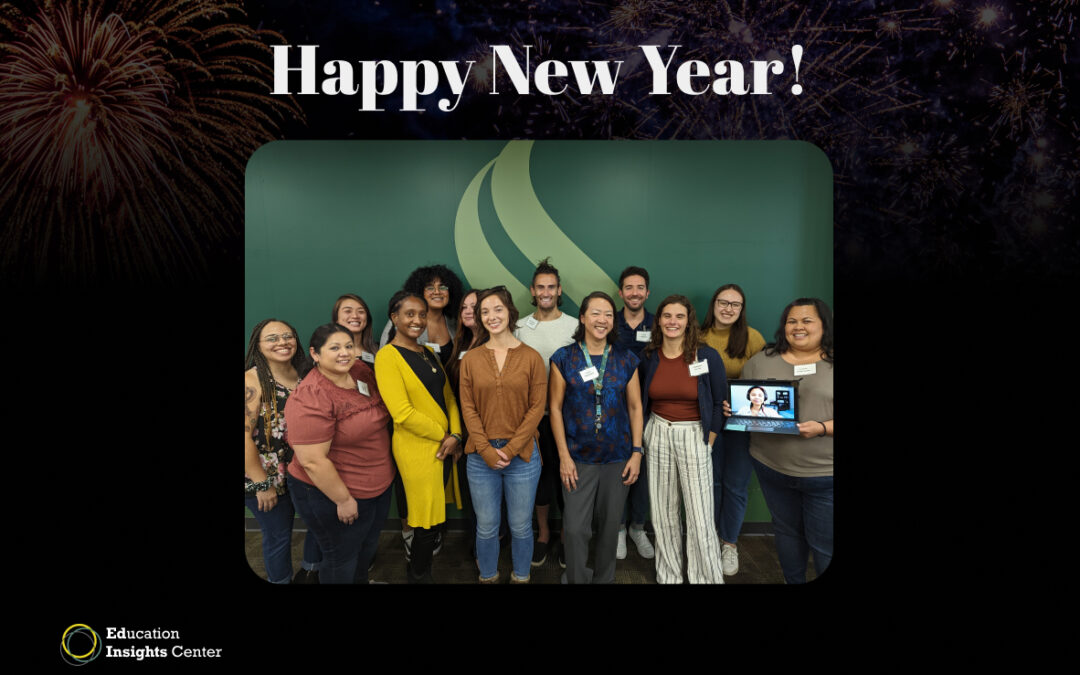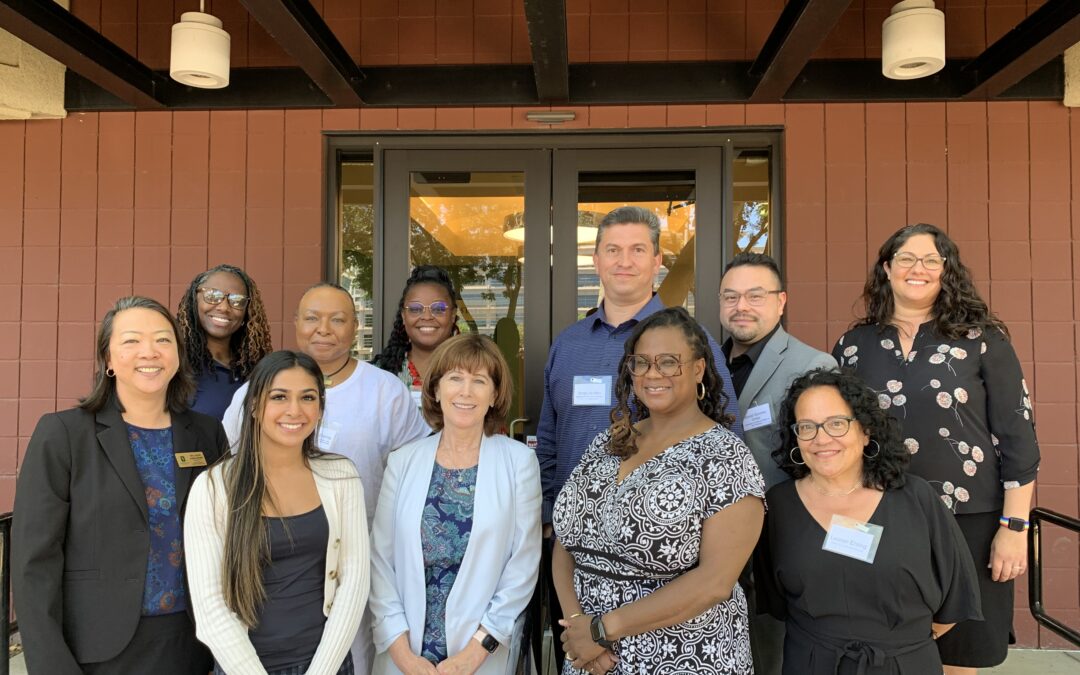Insights


A Whirlwind of Policy Weekend
EPFP fellows started their weekend by attending the Policy Analysis for California Education (PACE) conference Celebrating 40 years of Evidence and Impact. Sessions included a retrospective look at the Local Control Funding Formula, equity in college access, English learners, preschool expansion, community schools, and a session with Dr. Michael Kirst (former State Board of Education president) and Dr. Linda Darling-Hammond (current State Board of Education president).

Making Change from Where I Sit: Insights from West Ed’s Lupita Cortez Alcalá
In October 2022, the 2022-23 California Education Policy Fellows (EPFP) resumed in-person meetings for the first time since the COVID-19 pandemic. For our “Making Change from Where I Sit,” we invited Lupita Cortez Alcalá from WestEd to share about her career and journey. Learn how she worked to create access and opportunities to college and university for students of color to give them future career options in our latest Insights blog.

A 2023 New Year Message from EdInsights’ Executive Director Dr. LeAnn Fong-Batkin
As we begin 2023, I remain optimistic that the Education Insights Center (EdInsights) will focus on ways we can support California’s higher education system by informing policymaking and improving practice to create more equitable outcomes for students. These past few years have shown us that we can persevere, address equity issues (even in the midst of our racial and health pandemics), and care for our communities and each other.

Policy, Leadership, and Networking: The Education Policy Fellowship Program’s Summer Alumni Event
EPFP is a professional development program focused on education policy (both K-12 and postsecondary) that brings together fellows from across the state to provide professional development in policy, leadership, and networking. It is sponsored by the Institute for Educational Leadership, the state budget, and philanthropic funding from the Hewlett Foundation and College Futures Foundation. The program is entering its seventh year in 2022-23. As a statewide initiative, EPFP provides an opportunity for those from the K-12 and postsecondary practice and policy spheres to come together to break down silos that may exist in order to effectively create change.

Looking Forward in 2022: A Message from Our Executive Director
As the new Executive Director of EdInsights, I wanted to share some of my ideas and thoughts about where we are today and where we would like to go in 2022. EdInsights remains optimistic that together we can support students by identifying equity gaps and recommending improvements to the transitions that our students are experiencing as they move through our institutions.

Dr. LeAnn Fong-Batkin Appointed as New Executive Director!
The Education Insights Center (EdInsights) is pleased to announce Dr. LeAnn Fong-Batkin as our new Executive Director. Dr. Fong-Batkin brings over two decades of K-12 and higher education policy experience from WestEd, the Foundation for California Community Colleges, Sacramento State, the California Department of Education, the California Community College Chancellor’s Office, and the California State Auditor. She has committed her career to social justice and equity for under-represented students.

Justice-Involved Students’ Education: Barriers to Expanding Programs, but Opportunities for Future Progress
Many California Department of Corrections and Rehabilitation (CDCR) adult facilities paused in-person interactions and programming to help minimize the risk and spread of COVID-19, but offered correspondence-based community college courses instead. This transition...

Justice-Involved Students’ Education: The Importance of Collaboration and Communication
Correspondence-based educational courses are the only form of programming being offered in California Department of Corrections and Rehabilitation (CDCR) adult facilities during COVID-19, reaffirming the importance of collaboration with colleagues and partners around...

Justice-Involved Students’ Education: Understanding Barriers Exacerbated by COVID-19
California’s public colleges and universities cannot change the significant racial disparities embedded within the state’s criminal justice system, but by providing education opportunities to individuals who are currently incarcerated (justice-involved), they can...

Setting Priorities for California’s Cradle-to-Career Data System
The California Cradle-to-Career Data System Workgroup and its various subcommittees and advisory groups have been working hard all year to develop recommendations for the Governor and the Legislature on how to design and implement a longitudinal student data system to...
EdInsights Publications and Presentations
EdInsights publications and presentations are available for the public to view and share.
